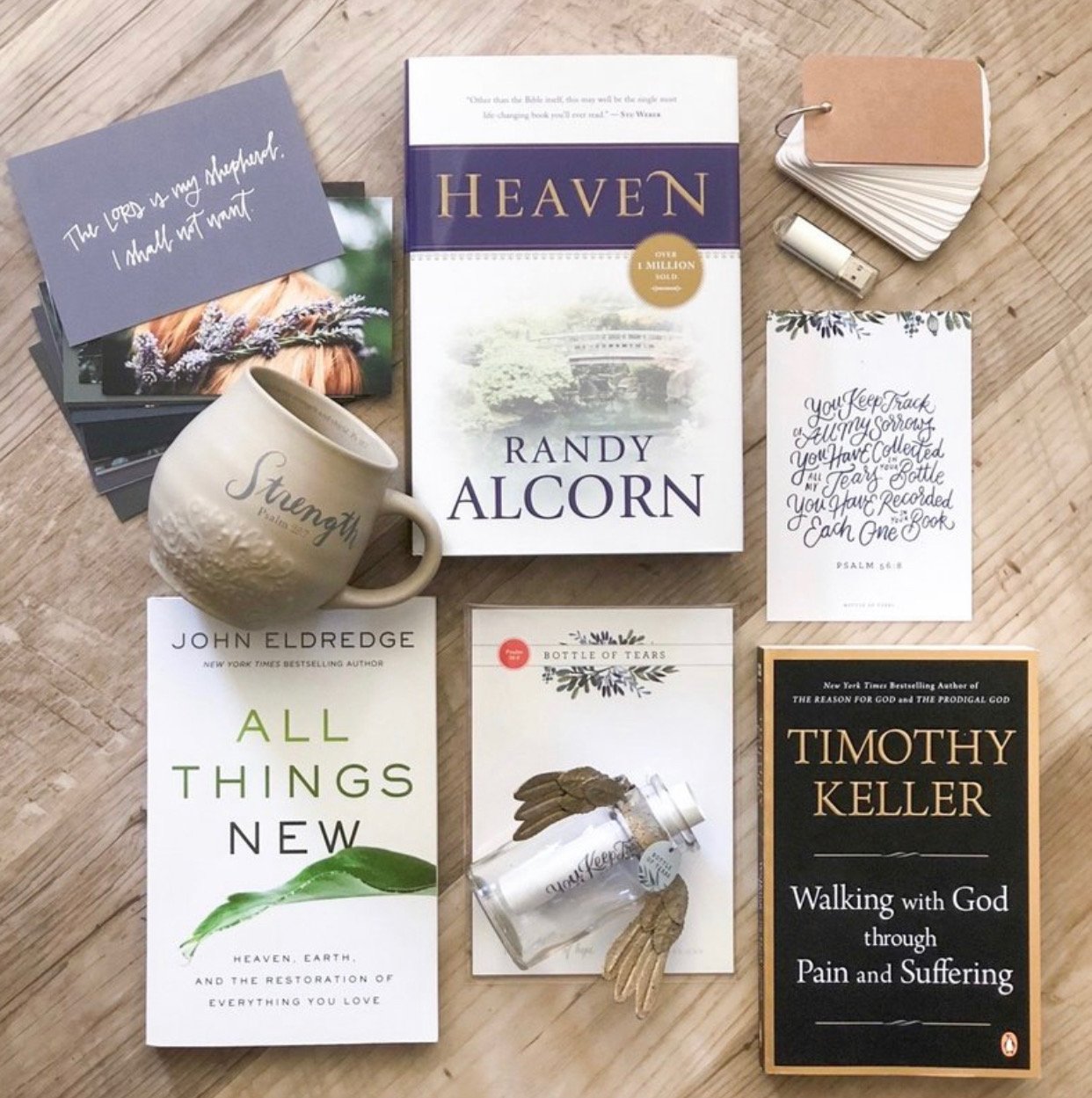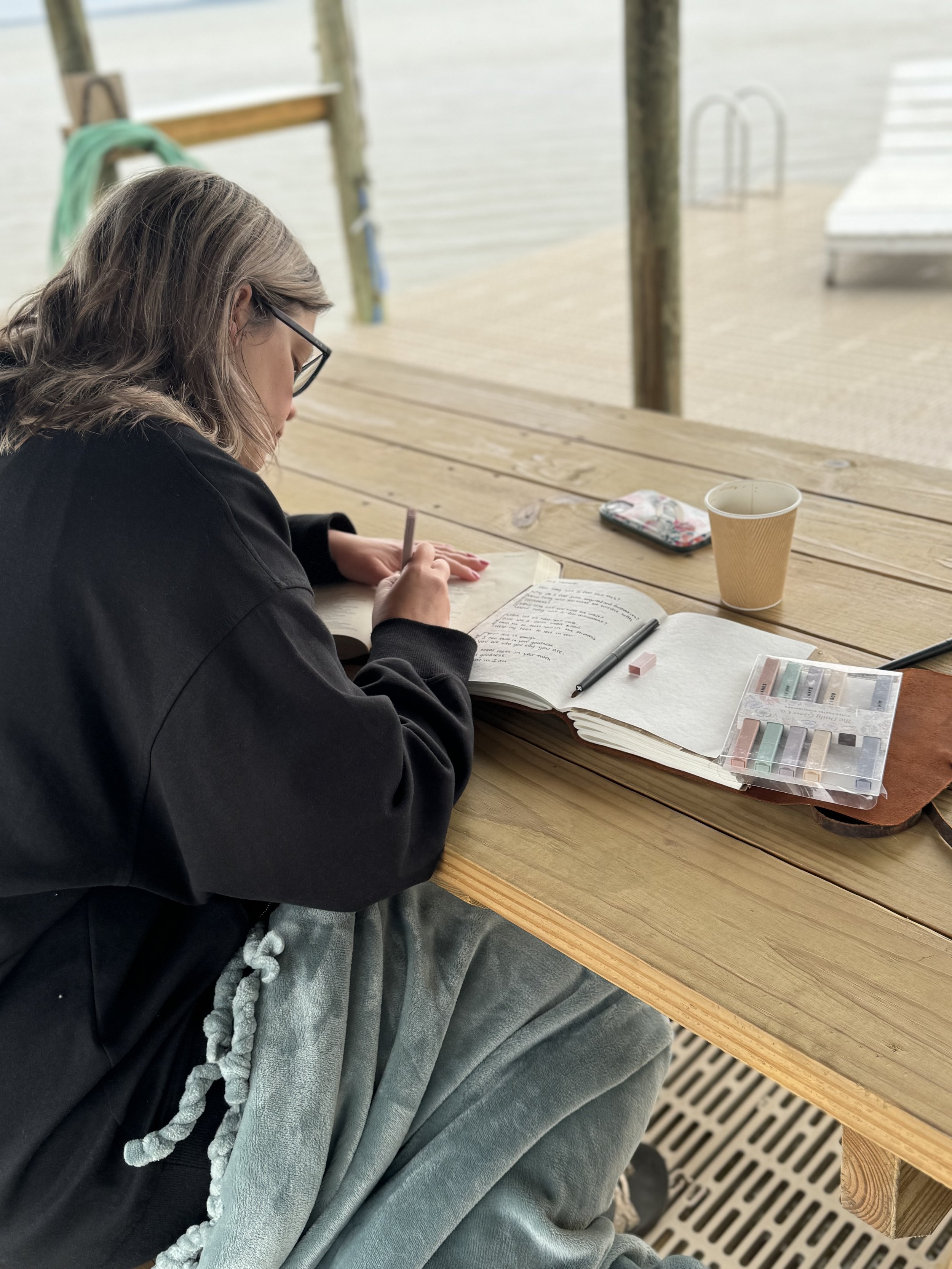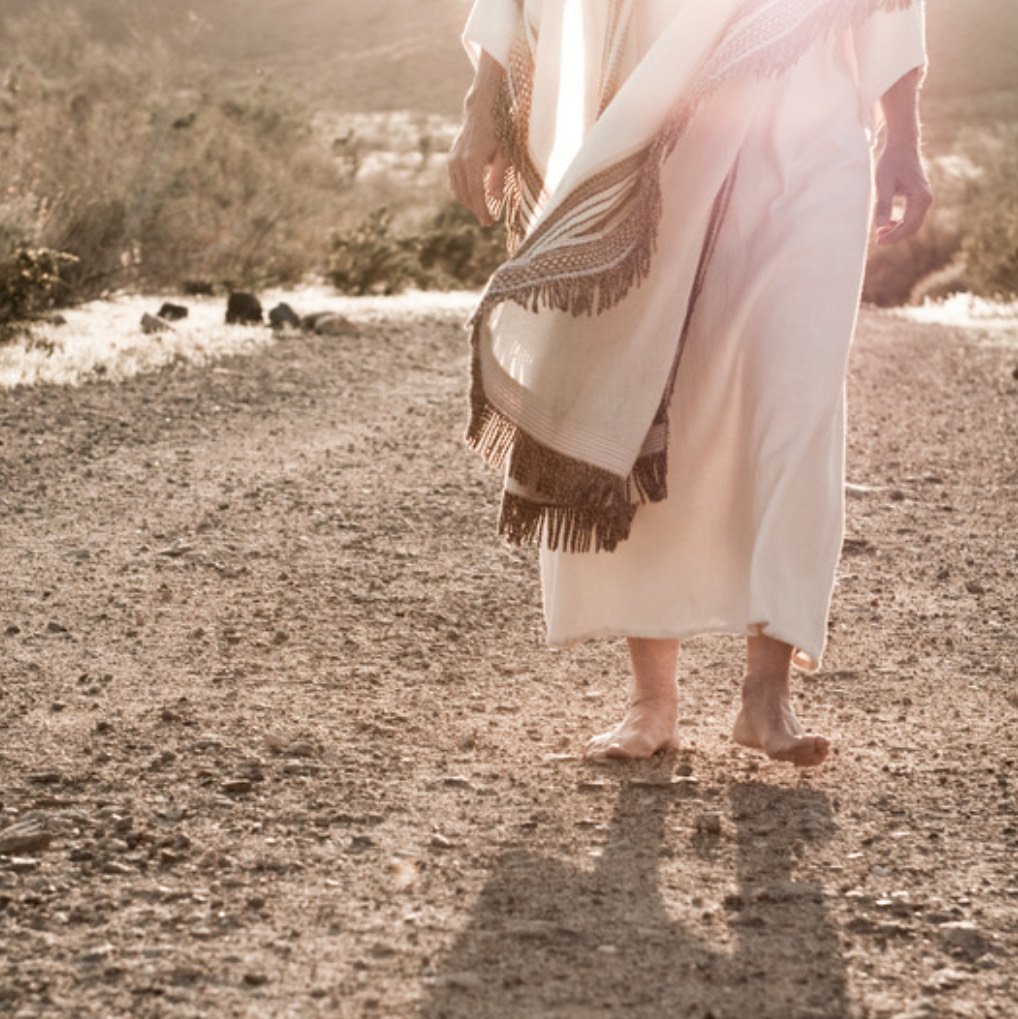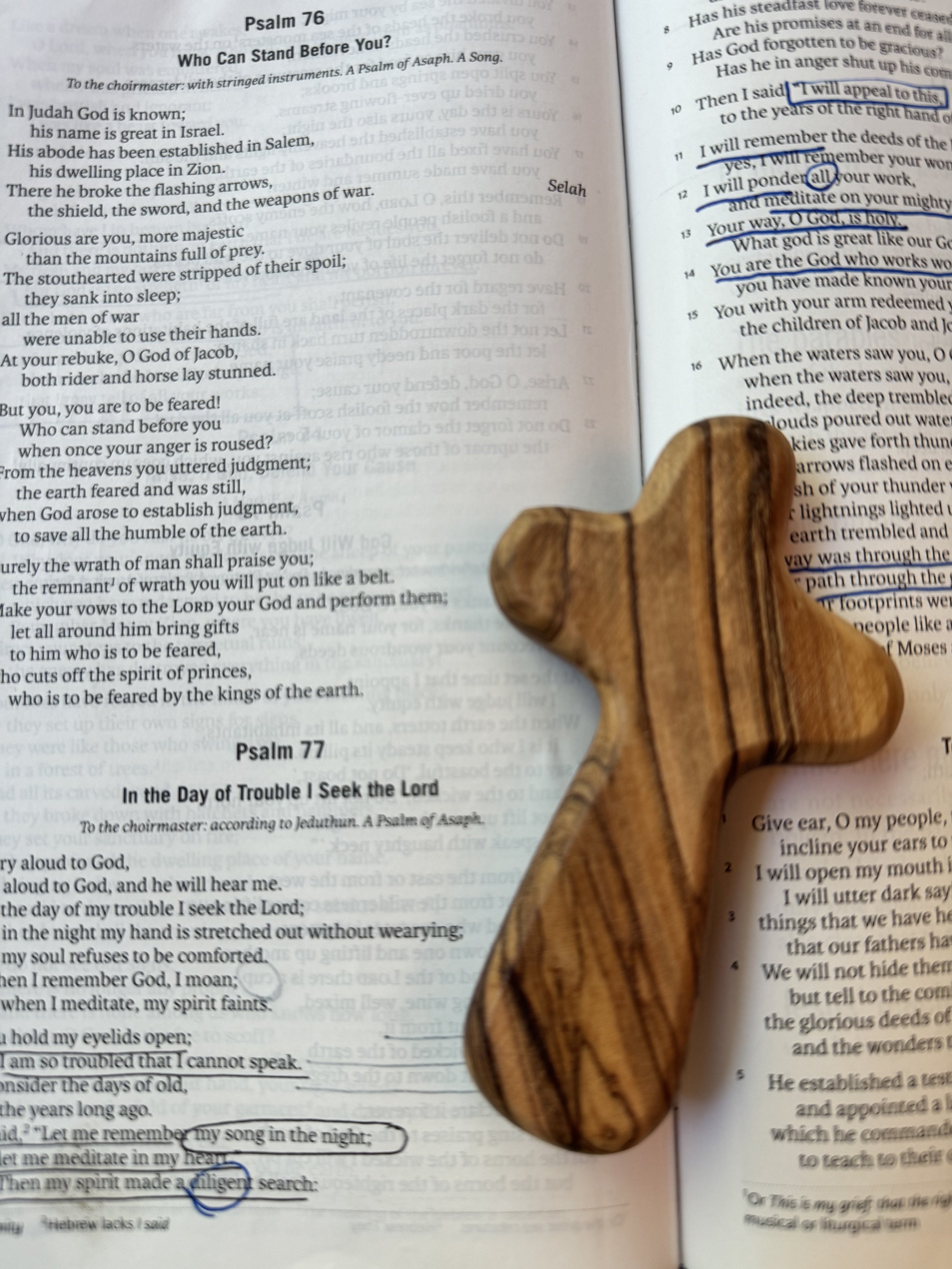
The Beginning
I had no idea, but this night would be the beginning of so much more. God had given me the grace to put one foot in front of the other for 365 days since the tragedy hit my home. He was now giving me the tangible experience of a Truth I had been standing on faith to believe: that God wouldn’t waste what happened. What the enemy meant for evil, God intended for the saving of many lives.

Our Beautiful Inheritance
I too was in an uncomfortable season and had been begging God to change things outside of my control. My young husband’s recurring heart issues kept worsening and no one could tell us why. Life felt hard, scary, and limiting. We were a young couple who were passionate about serving God and willing to go anywhere he sent us. We just never thought he would send us to the hospital… over and over again.

Release.
At the beginning of the year, Hayes and I were invited to attend a family retreat with Hope Family Care Ministries. It was our first experience to be in a setting with several other families who were also acquainted with deep grief. I watched Hayes bravely step into his personal story of loss.

In Our Struggle
The Christian Church just finished the lent and Easter season, the climax of our faith. This time is an opportunity to remember our sin and a beautiful celebration of the life, death, and resurrection of Jesus. But I think sometimes it can feel like an ending. In some ways, it is. In his resurrection Jesus defeated death and brought freedom from the enslavement of sin. This is a moment of victory and an ending to the waiting for the Messiah. And yet, it is not the end. It is the beginning of life.

Our Resurrection Hope
And because he beat death, he gives the gift of eternal life to all who trust in him. The grave is no longer the end. No, it has not yet been fully overcome and we still long for that day when Jesus will return and rid his creation of death forever.

Not My Will but Yours
Growing up in a traditional church, I loved the start of Holy Week. Palm Sunday, when fresh palm branches were handed out as we entered the sanctuary, was a day I looked forward to all spring. Listening to the jubilant choir, I would sit quietly in the pew, perfecting the skill of making a cross out of the branch in my hand. On the drive home in my family’s station wagon, my siblings and I compared crosses, judging whose was best.

An Unfailing Covenant
One of my favorite parts about reading Scripture is seeing the connection between the New Testament and the Old. Everything that happens in the New Testament comes alive and holds even greater meaning when you understand all the history and promises behind it. That is particularly true about Christ’s death and the last supper he has with his disciples. Jesus is reclining at the table with his apostles, breaks bread, and then gives them wine and says in Matthew 26:28 “For this is my blood of the covenant, which is poured out for many for the forgiveness of sins.” Friends, this is the gospel story that started in the beginning of time, continued through Abraham and Moses and Jeremiah and finds its fulfillment in Jesus. What Jesus is claiming in this statement brings all of Scripture together.

Sunshine & Rain
A friend of mine told me about a precious moment from her personal time with God. She was praying and soon found herself lost in her words. Her heart cried out with gratitude to God, “thank you for this suffering, because it has brought me close to your heart.” When the words came out of her mouth, she paused. It caught her off guard for a moment. Was her grief beginning to shift? Was her perspective changing? How could she hold gratitude for the long suffering of her husband’s battle with cancer, his death, and a grief journey for herself and their five small children?
Does my friend’s story teach us what it’s like to give thanks with all of our heart? To tell of all God’s wonderful deeds? How do we cultivate a heart like that? A heart that overflows with gratitude for all that God gives us: the sunshine and the rain.

Unmoored
Over Christmas, I read the historical fantasy novel Babel by RF Kuang. In it, a young boy is removed from his home in Canton, China and taken to London after his family died in a plague. Kuang describes how he was feeling as: “The word loss was inadequate. Loss just meant a lack, meant something was missing, but it did not encompass the totality of this severance, this terrifying un-anchoring from all that he’d ever known.” This depiction stopped me in my tracks because it so intimately portrayed what it felt like to lose my husband. Kuang is right in this sense that the word loss does not even begin to cover what happens when you lose the closest person to you, someone who was connected to every aspect of your life. It is a “severance,” an “un-anchoring.” For months I felt unmoored. If I am being honest with myself, still today, over three years later, I can still feel unmoored. My house is different without his presence, my car stays dirty longer because he was always the clean one, there is no longer a parenting partner to tap in when my patience has run dry. I don’t have someone to ask if the outfit looks good or someone else to enjoy my cooking. A bottle of wine takes much longer to finish and all of a sudden I had to figure out how to be the fun parent. I do not think I have seen more than five movies in the last three years because he always loved movies more than I did. I can go entire evenings without speaking out loud. I still find myself reaching for my phone to text him something I find funny.

Longing to be Seen
We all long to be seen. More than that, to be known. We desire to be chosen and cherished; to be special in at least one person’s eyes. It’s one of the adjustments that makes widowhood so hard. We suddenly find ourselves feeling invisible and wondering if anyone would notice if we simply disappeared.
Early in my grief, I lamented to my counselor that I wasn’t anyone’s “person” anymore. My husband and I had often said that marriage was having a built-in best friend: a go-to person to call when lonely; hangout with when bored; tell stories to (even the dull ones) when feeling chatty; and walk with into social situations when feeling insecure. We were each other’s person. There was no question that we’d be together on holidays. Our birthdays would be celebrated by the person who loved us most. And Valentine’s Day? Even if we were eating takeout pizza in sweatpants, we’d be spending it together.
But now? I was alone. The third wheel. The afterthought. The one who had to fit into everyone else’s plans. Aside from my child (whose love for me is based mostly on need), I wondered if anyone would even notice if I didn’t come home one day or check on me if I didn’t show up to a usual place.

The Fragility of Life
I didn’t have a choice in becoming a widow at 34 while five months pregnant with an eighteen-month-old son. Four years later, I didn’t have a choice in getting diagnosed with breast cancer at 39, only two weeks before I got remarried. Yet, I do have a choice in how I respond to the grandeur and position of our God in my trials. That is my part. My part is not to try and understand my hardship, but to seek after true understanding of God and who He is. My understanding of God will be my grip to endure future hardships. I pray and continue to ask God to make my response like Job: humble, repentant and accepting.
I would love to conclude this reflection with a similar ending of Job’s life. Many blessed years, restoration of that which was taken. The truth is though, I am still right in the middle of the storm. The winds haven’t silenced and the rains some days still feel like a torrential downpour. In all honesty, the restoration of Job’s life didn’t give him back what He lost. Don’t get me wrong, the blessings that God gave Him are a gift. I believe they brought much joy in the many years of life he lived; however, suffering gave him something that will never be taken away. Suffering gave him a firm footing that carried him into the next storm, or blessing, or joy, or sorrow. Knowing and believing, in its purest form, the knowledge and experience of who God is.

Seeking Jesus in the New Year
Presents were opened, cookies were eaten, and family was visited: we did it. We made it through another Christmas without our husbands. It’s no small feat to survive the holidays after the death of a spouse, yet here we are on the other side.
As the world shifts from Christmas celebrations to New Year’s resolutions, our sense of wonder at Jesus’ birth can quickly fade. Life returns to normal and the start of a new year brings all kinds of complicated emotions. For those whose husbands died recently, it’s hard to start a new year without them. The constant march of time is painful when each day takes you farther from their presence. We who’ve grieved longer experience mixed emotions and swirling questions: Is this the year we’ll finally “get over'' our grief and learn to live fully again? Will we be blindsided by more loss and finally succumb to our grief, unable to carry on? Or will this be the year that we will get a new job, new home, new exercise routine, or even a new relationship that unlocks the door to thriving after loss?
As I’ve pondered what the coming year may hold, my mind has turned many times to the story of the wisemen. Their presence in the Christmas narrative has been reorienting my heart to what matters most as we start a new year.

A New Covenant
The sufferings of this life can make us feel as if we are under curses rather than blessings. We feel like we are in exile, waiting for the future hope God had promised. We feel the weight of the brokenness of the world, as I am sure the exiles tangibly did. They had seen their friends and family die by sword and famine, they had watched the places they loved be burned and torn apart. They walked among brokenness daily and they carried the weight of it. Unlike the exiles, much of our suffering is not due to our sin, but it reminds us of how broken our world is. We carry the weight of that moment death struck nearer than we ever wanted it to. We carry the weight of the pain of our children. We carry the weight of the doctors who made a mistake, or the driver who did not follow the law, or the depression or addiction that sunk so deep. We have heavy yokes to carry.
We feel like we are in exile as loneliness scars our hearts and loss makes us feel homeless. We look around us and cannot help but wonder if we are the only ones who have experienced this much pain. We wonder if anyone will ever understand us again. We wonder if part of us will always be alone even when we’re standing in a group of people.

Advent with Empty Hands
Advent hasn’t yet begun and I already need a break. My weary heart longs for a rest but it’s the busiest (and supposedly jolliest) season of the year, and rest is hard to find. Don’t get me wrong: I love Christmas. This time of year with its brightly lit town squares, warm holiday drinks, and Christmas carols playing in stores is magical for me too. It’s just that my heart longs for more… and at the same time, for less.
Delicious treats, festive parties and carefully chosen gifts are good things, but after the death of a spouse, they can feel hollow. It’s hard to muster a smile and a jolly attitude when your heart is broken. And when regular days are exhausting, the holiday season can feel like an overwhelming marathon that starts at Thanksgiving and ends at New Years with a mess of decorations and already-forgotten toys that need to be put away. As grievers, we can wonder if this season has anything for us. Does Christmas only offer a distraction from sorrow and a break from work? Is it just an excuse to eat sugary treats and buy things that sparkle but will soon lose their luster?

Beholding the King
The prophets foretold of a king. A king who would be righteous and victorious (Zechariah 9:9). God’s people waited. Much of the waiting was in darkness. Earthy kings failed them over and over again. When there was devastation all around, Isaiah prophesied, “The people who walk in darkness will see a great light. For those who live in a land of deep darkness, a light will shine” (Isaiah 9:2).
Their longing was deep. Then 400 Silent Years came where there were no new prophets to reveal anything about the coming Christ. Darkness fell and it was silent. God’s people needed rescuing.
With great intensity, they longed for a rescuer. I think it’s interesting to notice who had eyes to see that Jesus was the Messiah in the Christmas story. Who were the ones still watching and waiting with expectation? Many had given up. Many had chosen to numb the pains of waiting by choosing their own way. Many took their eyes off the promise.
Then there were the faithful ones.

Turned Toward the Light
I’ve always wanted to visit a sunflower farm. Years ago, I started following the instagram account of a woman from Kansas who shared dazzling photos of acres filled with sunflowers each fall. The flowers seemed impossibly large and were bunched together so tightly that it looked possible to run across their tops. Even through a computer screen, I was mesmerized by their beauty and longed to see them in person.
So when our recent hayride turned the corner into a pumpkin patch bordered by densely planted sunflowers, I was elated. It wasn’t the full Kansas experience I’d wanted, but I was thrilled nonetheless.
The wagon dropped us off in the middle of the pumpkin patch; far from the sunflowers. Knowing it would be worth the walk, I made my way up the hill to stand among the flowers growing taller than I ever did.
As I drew near, it wasn’t their beauty that struck me, but how sad they looked. From a distance they looked strong, with heavy heads lifted high. Standing closer, I could see that the blossoms, filled with developing seeds, bent toward the ground. The burdensome load was too heavy to keep upright, despite the strength of the straight and thick stalks. I had to crouch down low to get a full glimpse of each flower’s beauty.

Food for Our Souls
I started reading Ezekiel this morning and came across a verse that broke my heart. At this point in the story of Scripture, much of Israel is in exile in Babylon, including Ezekiel. The fall of Jerusalem has not quite happened but will happen during Ezekiel’s writing. In the beginning of Ezekiel’s story, God is calling Ezekiel to speak God’s words to Israel, to prophesy about what is to happen. In 4:16-17, God says to Ezekiel “Son of man, I am going to cut off the supply of bread in Jerusalem. They will anxiously eat food they have weighed out and in dread drink rationed water for lack of bread and water. Everyone will be devastated and waste away because of their iniquity.” Because of Israel’s sin, God is going to stop the supply of bread, leaving his people hungry and dying.
This is clearly a dismal position for the Israelites, but my heart breaks mostly because it is a clear representation of how Israel’s relationship with God has broken. In the beginning of Israel as a family and then a nation, God tangibly provided bread for his people. Genesis tells us that God sent Jacob’s son Joseph to Egypt to prepare the land for the upcoming famine. By having a family member there, Jacob and his seventy descendants (the beginnings of Israel) can move to Egypt and have the food they need. Some generations later, God uses Moses to lead his people out of Egypt and slavery. On the way to Mount Sinai, the Israelites grow thirsty and hungry. God provides water from a rock (Exodus 17) and a bread-like substance called manna from the dew (Exodus 16). This is the relationship Israel once had with the Lord their God- one where they were needy, but he was close and provision complete.

Struggling to Speak
I spent a lovely August morning working outdoors on a community project alongside a person I’d just met. We exchanged pleasantries and asked typical get to know you questions about each other’s work and families. It’s a scenario I avoided at all costs in the year after my husband died. I dreaded small talk that might lead to questions about my husband and bring me to tears in front of a stranger. Now, 32 months into widowhood, introductions that necessitate talk of death is well trodden territory. I’ve said the terrible words “died” and “widow” aloud often enough that I no longer choke on sorrow as I try to explain who I am.
So I was surprised that I couldn’t bring myself to say those words to the kind man working alongside me. Instead, I gave vague answers and hoped he wouldn’t press me for details. “Did you and your husband attend X event?” was met with an answer that completely avoided the fact that my husband was in a grave. “How long have you lived here?” was met with a response that implied my husband was indeed still living here. My husband seemed to randomly appear and disappear as I answered the man’s questions. I didn’t use the phrase “late husband” to signal that he is deceased. Instead, I let him try to put together a puzzle that sounded confusing even as I was speaking it. My life just doesn’t make much sense when I leave out my husband’s death.

An Abundance of Leftovers
Every once in a while I will read a verse with a phrase I cannot get out of my head. A phrase that opens my eyes to something about the Lord that I had not thought about much before. This week that phrase is “leftovers.” If you’re a parent, this word is usually associated with groans from your children or possibly a hunt through the pantry to find some way to make the excess food taste new. For me, there’s also a feeling of relief when I realize I have leftovers, a break from meal planning and cooking. In Scripture, leftovers means the same thing: the extra food not eaten after a meal; which seems not particularly spiritual or helpful. I do not think that is true, though. In fact, for me, it touched the part of my heart where the things that are hard to believe about God live.

Precious in God’s Sight
In the wake of my husband's death, some of the hardest things to hear were other people’s explanations for why God allowed him to die. At times, it seemed as if his death was a mystery being solved by a well-meaning committee determined to find a “rainbow” at the end of my “storm”.
Their ideas varied as much as their perspectives on my life: he died because it was his time; because he had suffered too much and couldn’t handle more; because God knew I was strong and could entrust suffering to me; because God knew I couldn’t handle more caregiving and was sparing me of pain. Each explanation was intended to give comfort but only left me feeling worse. In my head, I argued with every reason they gave: but he had so much life to live; he could surely endure more to be here with us; I’m not strong; I’d take him back in a heartbeat!
As time passed and my son and I began to experience goodness in life again, the “well-meaning committee” found new reasons to explain my husband’s death. When something positive happened (especially something his ongoing battle with heart failure would’ve precluded), they drew a precarious line from my husband’s death to the event and triumphantly announced that the search was over: they finally had a good reason for my husband’s death.”Look at what you’ve been able to do since he died!”, they rejoiced. Their words seemed to imply that it was time for me to move from lament to acceptance, and dare they even say… joy.
